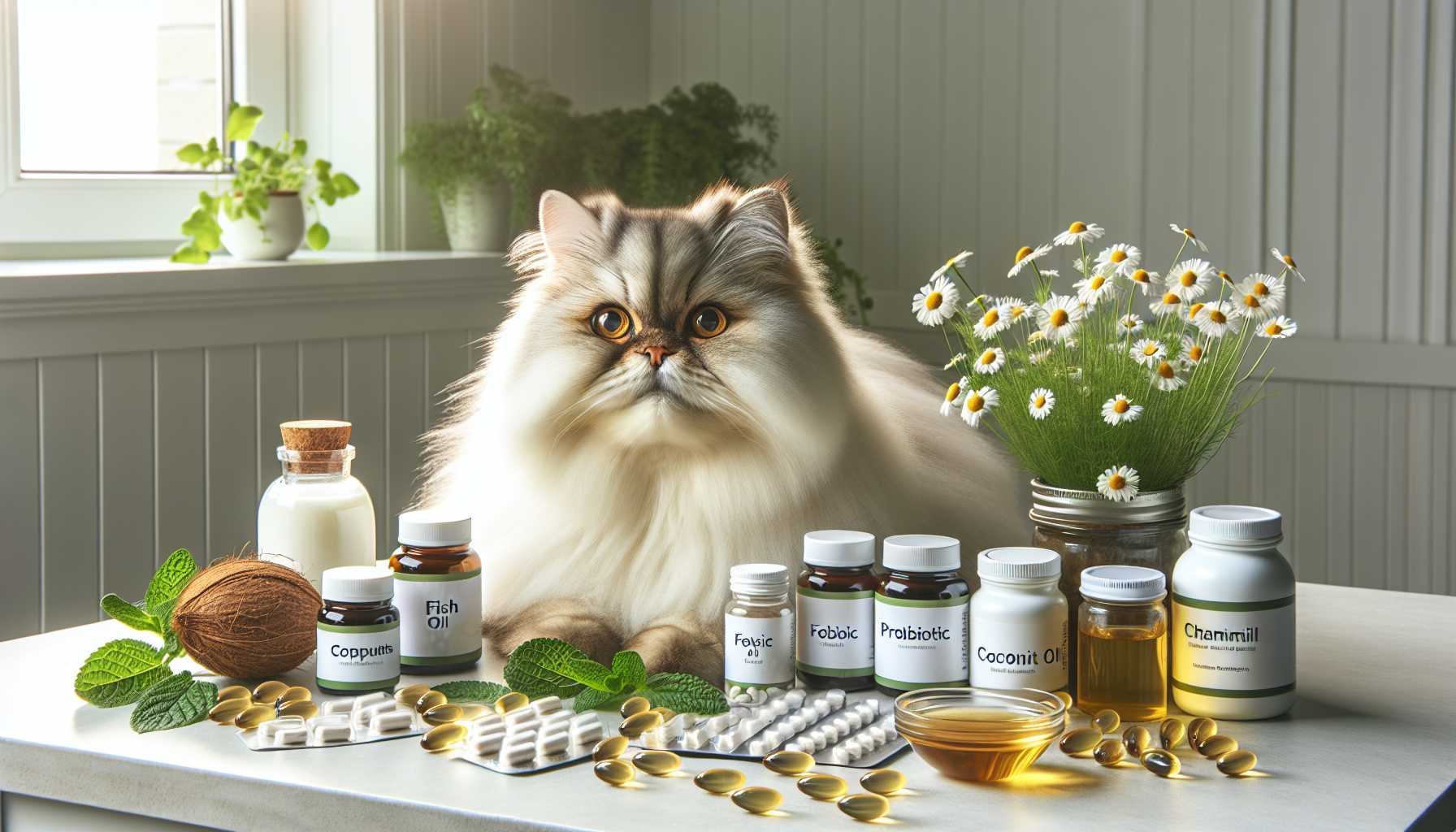Does your whiskered companion have food allergies? Don’t worry; you’re not the only one grappling with this issue. Fortunately, certain supplements may provide some relief to your beloved feline. Let’s delve into which ones can ameliorate your cat’s discomfort.
Navigating Cat Food Allergies
Just as with people, cats can develop sensitivities to certain foods. The usual suspects? Chicken, fish, and dairy products. When your cat develops an adverse reaction to food, their immune system kicks into overdrive, resulting in unpleasant symptoms such as itching, vomiting, or diarrhea.
Beneficial Supplements for Cats with Allergies
Omega-3 Fatty Acids
These remarkable nutrients play a pivotal role in reducing inflammation and promoting healthy skin. Keep an eye out for fish oil supplements tailor-made for cats. They function like soothing internal therapy!
Probiotics
A balanced gut paves the way to a content cat! Probiotics maintain equilibrium in your kitty’s digestive system and fortify their immunity, proving especially useful during changes in diet.
Digestive Enzymes
These additional components behave like mini assistants that simplify food breakdown. They ease the digestion process for cats with sensitive digestive tracts.
Natural Remedies
Quercetin
Frequently touted as “Nature’s Benadryl,” this supplement can naturally diminish allergic flare-ups. It’s particularly potent when it comes to addressing skin-related symptoms.
Coconut Oil
A moderate application of first-rate coconut oil can bolster immune functionality and offer anti-inflammatory advantages. Plus, its flavor is wildly popular among felines!
Essential Tips for Success
- Commence with reduced doses
- Seek veterinary counsel before initiating any supplemental regimen
- Observe your cat’s reaction attentively
- Opt for top-quality, feline-centric supplements
- Exercise patience – it takes time to see progress
When to Contact a Veterinarian
While supplemental treatment can offer relief, professional intervention is sometimes necessary. Reach out to your vet if you observe:
– Intense skin discomfort
– Marked weight reduction
– Persistent vomiting or diarrhea
– Diminished appetite
Conclusion
Addressing your cat’s food allergies needn’t be a daunting task. With appropriate supplementation and a dash of patience, your furry buddy can experience a marked improvement. Just bear in mind that every cat is an individual – what works wonders for one might not be effective for another.
In search of customized tips? Don’t hesitate to consult your vet. They’re your best ally in ensuring your cat remains hale and hearty! 💕

